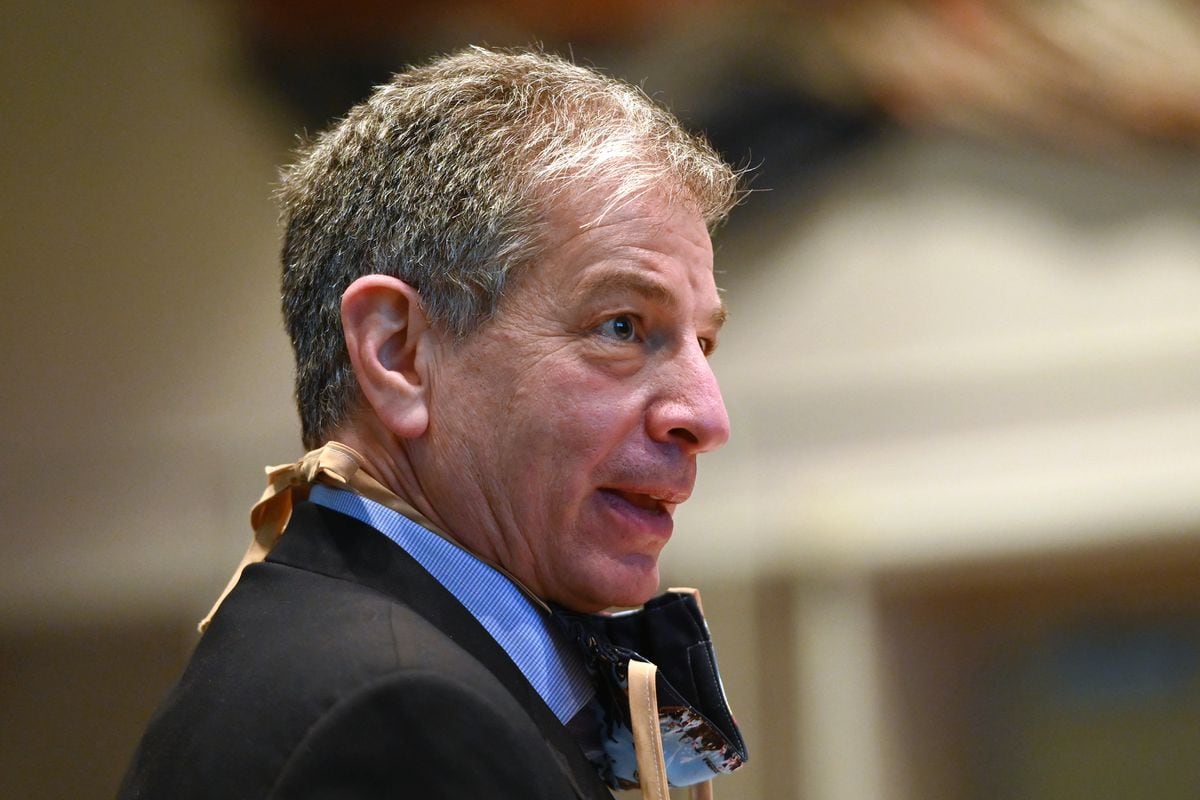
The Assembly voted 9-2 for the extension, with Eagle River-area members Crystal Kennedy and Jamie Allard voting against it.
An emergency to help deal with the pandemic was initially declared by the mayor on March 12. He used that authority to impose orders like the closure of bars and restaurants to dine-in service and later the “hunker down” order.
While those orders have been lifted, Anchorage Municipal Attorney Kate Vogel said the administration still needs emergency powers to allow it to react quickly if the virus surges.
The extension of a proclamation does not necessarily mean the extension of any one emergency order issued under the proclamation. For example, the emergency proclamation is still in effect, but the strictest order issued under it, the “hunker down,” was lifted more than a month ago, Vogel told the Assembly.
The Assembly also has the power to end the proclamation period early, or terminate any specific emergency order.
During debate, Assemblyman John Weddleton asked what services the city would have to shutter if the emergency declaration period expired. Municipal Manager Bill Falsey gave him a list that included reassigning municipal employees to pandemic-related positions, standing up emergency shelter and isolation faculties, testing, contact tracing and monitoring.
“All of those are making use of the fact that we are allowed to move money to those problems quickly,” Falsey said.
Falsey said going forward, this flexibility is needed, especially if they start to see people coming into the state with the virus. If travelers don’t have locations to quarantine in, the city will have to put them somewhere, he said.
Kennedy asked Falsey a similar question, and he gave her a “real world” example. Right now, Providence Health and Services Alaska plans to close its drive-thru testing site. Falsey said if that happens, the city might have to prop up a drive-thru site so that service doesn’t get terminated.
That service will become even more important if Anchorage has travelers who need to use it, he said.
Without an emergency declaration, the Berkowitz administration would have to request the Assembly approve spending on a drive-thru site, which would require a public hearing with advance notice. It could create a significant lag, he said. During the emergency declaration, the city is able to quickly move money around to solve that problem.
During debate about the emergency period, some members used the opportunity to ask about Gov. Mike Dunleavy’s new travel policy, announced Friday. Rather than having to quarantine for 14 days upon arrival to Alaska from Outside, travelers could get a test up to three days before they travel, and show their paperwork when they land in an Alaska airport.
Dunleavy did not have specifics on the plan when he announced it, and has not yet released the updated travel mandate. The current policy of a mandatory 14-day quarantine for travelers is in effect through Friday.
Assemblywoman Meg Zaletel said that policy seems to ignore the risk of contracting the virus in the days following getting tested, including time spent in airports and on planes.
“We are kind of opening up a giant hole in our safety precautions if we just go with the governor’s plan,” Zaletel said.
Falsey said the administration is similarly curious about that issue, and is awaiting clarity from the governor. He said the city has asked about post-arrival testing being added to the policy, but hasn’t heard back.
“There are still some open questions for us, many open questions, about how the mechanics would work,” he said.
There is also concern that Anchorage just doesn’t have the ability to handle a surge in cases that could result from increased travel.
“We are halfway to our local capacity for monitoring and contact tracing, so we agree that it’s a concern,” said Anchorage Health Department Director Natasha Pineda.
However, testing travelers upon arrival creates its own issue. Weddleton asked if we have enough tests to accommodate the potential 3,000 daily travelers landing in Anchorage.
Falsey said the city has been “borrowing and stealing” raw supplies like testing swabs and vials. If the city is unable to fill needed testing, it could lead to rapid spread of the virus, Pineda said.
“We wouldn’t want the new strain of airport testing to put an undue stress on the in-Alaska testing that we are currently muddling our way through,” Falsey said.
[Because of a high volume of comments requiring moderation, we are temporarily disabling comments on many of our articles so editors can focus on the coronavirus crisis and other coverage. We invite you to write a letter to the editor or reach out directly if you’d like to communicate with us about a particular article. Thanks.]
"emergency" - Google News
June 04, 2020 at 12:18AM
https://ift.tt/2XvTkP8
Anchorage Assembly extends COVID-19 emergency declaration to July 31 - Anchorage Daily News
"emergency" - Google News
https://ift.tt/2VVGGYQ
https://ift.tt/3d7MC6X
emergency
Bagikan Berita Ini














0 Response to "Anchorage Assembly extends COVID-19 emergency declaration to July 31 - Anchorage Daily News"
Post a Comment